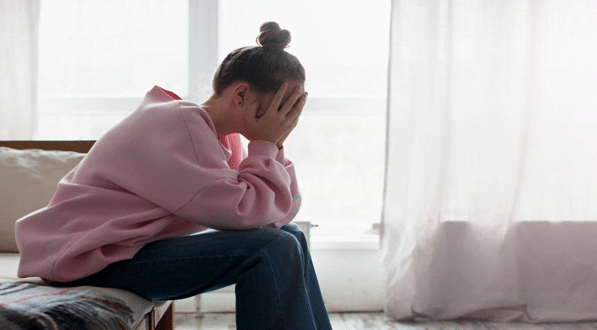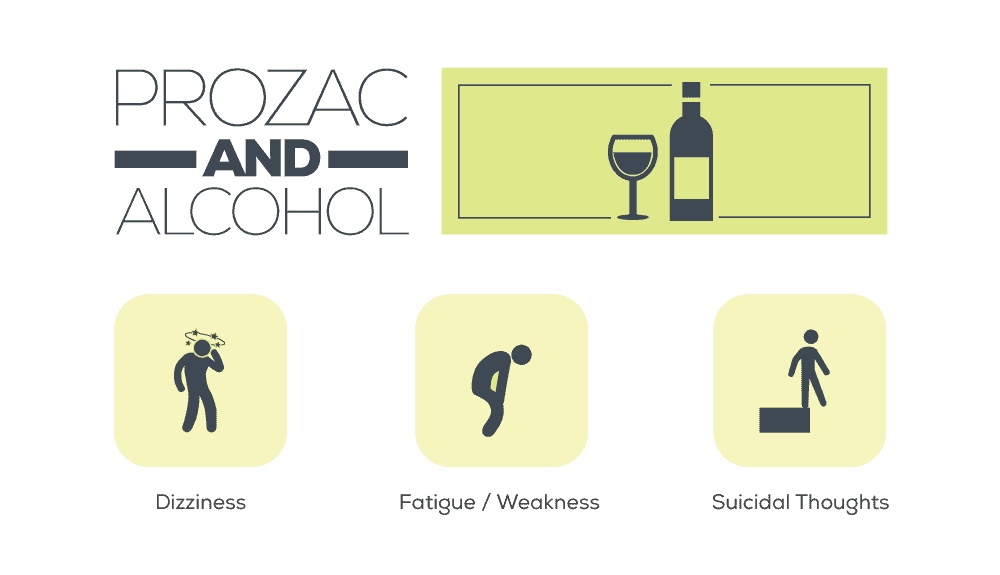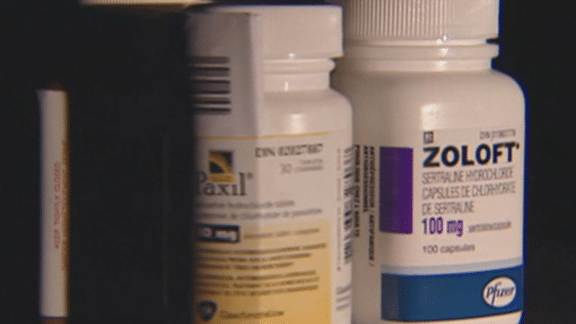Momentary or situational anxiety is a common human emotion. But if someone faces intensive and intrusive anxiety or depression that affects their regular life, then it is not normal. Today, more than 40 million adult Americans suffer from anxiety disorder.
Also, the majority of people do not get proper medical treatment. Fortunately, now we have several prescribed medications like Prozac to help manage and treat anxiety and depression. It is one of the popular FDA-approved medications for managing anxiety disorders.
Prozac is also helpful for depression and other related problems. It can help people dealing with depressive episodes of bipolar I disorder, Post-traumatic stress disorder (PTSD), obsessive-compulsive disorder (OCD), Major Depressive Disorder (MDD), bingeing and purging in eating disorders, and so on.
So, keep reading if you are suffering from any of these or want to know the use of Prozac for anxiety and depression. Today, we will discuss how Prozac is effective for anxiety and depression, its usage, and more.
What is Prozac?
Prozac is a popular name in the medical world. It is an FDA-approved medication for managing anxiety disorders. Prozac or fluoxetine falls under one of the classes of antidepressant medicines.
They are called SSRIs or Selective Serotonin Reuptake Inhibitors. SSRI medications work by increasing the amount of serotonin in the human brain. Earlier, in 1980, when Prozac first came to the market, it was only approved by the FDA for treating clinical depression.
Later, the FDA approved Prozac for anxiety disorders, bulimia nervosa, and MDD. Currently, it is a popularly prescribed medication for managing certain anxiety disorders, eating disorders, and clinical depression-related conditions.
Does Prozac Help to Treat Anxiety and Depression?

Many people use Prozac for anxiety and depression treatment. But you must know that Prozac cannot cure anxiety or depression. The FDA approves it for managing anxiety disorders and depression-related symptoms. Prozac is legally used to treat patients with panic disorders and OCD.
- OCD: OCD, or obsessive-compulsive disorder, is an anxiety disorder. OCD patients face intrusive sensations and thoughts (obsession) and develop repetitive behavioral patterns (compulsion), called OCD or obsessive-compulsive disorder.
- Panic Disorder: Panic disorder is also a type of anxiety disorder. Patients with panic disorder face extreme, unknown, and regular feelings of fear and terror.
Even today, researchers are continuously testing the full potential of Prozac and whether it can treat other anxiety disorder types that are yet to be approved by the FDA. Currently, professionals in the mental health sector can use Prozac as an off-label medicine for certain anxiety disorders.
They can prescribe Prozac for social anxiety disorder (SAD), generalized anxiety disorder (GAD), persistent depressive disorder (PDD), Post-traumatic stress disorder (PTSD), and so on. So, these off-label medicines are safe and help only when the professionals are using their knowledge and desertion.
How Does Prozac Work?

Prozac is a popular and effective medication for certain types of anxiety disorders. It is a standard treatment option for people with various anxiety disorders. Prozac helps to enhance mood and sleeping cycle, regulate emotion, and increase appetite by increasing the Serotonin levels in our brain.
As a result, it helps to calm the nervous system and prevent hyperactivity. Serotonin is a neurotransmitter that transmits one feeling/sensation to another neuron. It positively impacts the brain and helps to boost mood. Prozac helps to increase serotonin to manage anxiety symptoms.
Many mental health professionals prescribe SSRIs such as Prozac for anxiety and depression. They prefer Prozac as it has less severe side effects than other antidepressants and anxiety medication. Prozac can also be combined with other anxiety treatments to help patients with anxiety and depression.
A lot of mental health professionals combine Prozac with psychotherapy and other treatment options to help affected patients relax and improve their quality of life.
How Does It Feel Like to Take Prozac?

When you take Prozac for anxiety and depression and experience a positive response, you may feel reduced feelings of anxiety and depressive thoughts. You may also feel like more yourself again after a while (taking Prozac). Below is the list of things you can experience when you take Prozac-
- You may witness improved sleep and appetite.
- Feel less anxious and more relaxed.
- Have a positive outlook towards life and have more interest in life.
- You can also notice a significant improvement in concentration and other cognitive functions.
- You can experience increased energy levels.
It would be best to remember that the medicine takes time to show noticeable improvements. Also, in some cases, Prozac can take 10-12 weeks to deliver results. In addition, you may face adverse impacts/side effects in the beginning that can make it harder to notice the positive response of Prozac.
How Long Does Prozac Take to Start Working?
Prozac is a type of antidepressant (SSRI) that helps to manage the symptoms of anxiety and depression. And like any other antidepressant, it also takes some time to show the results. As for Prozac, it usually takes 4 to 6 weeks to start working.
For some people, it can take up to 12 weeks to show its effects. It would be best to forget that every human body is different, and different bodies will respond to Prozac differently. So, it is natural for some to see its effects quickly and others lately.
Another important reason most mental health professionals prescribe Prozac is its half-life. Prozac has a much longer half-life than most other antidepressants. A half-life of medicine means the time it takes to reduce its half-active substance in the body. For example, if the average half-life of antidepressants is one day, for Prozac, it will be 3 to 4 days. So, it makes it easy for patients to discontinue and move to other medicines.
If Prozac starts to work within the first 4-8 weeks or takes some more time, you need to take the medication regularly as per your mental health specialist’s instruction. Once you notice the positive response, you will understand the medicine has started working.
How to Use Prozac for Anxiety and Depression?

Most mental health professionals prefer Prozac for anxiety and depression treatment. They like to prescribe Prozac over other antidepressants or SSRI (Selective Serotonin Reuptake Inhibitors) medications. So, if you are suffering from anxiety or depression-related symptoms, you might wonder how to use it for anxiety and depression. Also, the age, race, gender, and need help to determine the dose of Prozac for depression and anxiety. Below, we will discuss the detailed dosage of Prozac for anxiety and depression-
Prozac Dosage for Anxiety
Fluoxetine or Prozac helps manage anxiety symptoms. It is available in various dosages and strengths, including capsules, tablets, and liquid forms. This makes the Prozac dose easy for different patients. You must consult with a mental health specialist to take the medicine. They can prescribe you a suitable dosage according to your condition. Here is the general dosage instruction for adults with anxiety disorder for your reference-
- For beginners – 10 milligrams
- Average dose – 20 to 60 milligrams
- High dose – 80 milligrams or more
Note: Remember to start with the lower dose and consult a mental health professional before taking the medicine.
Prozac Dosage for Depression
Prozac is approved for managing certain anxiety disorders. But it is also helpful for managing depressive thoughts and depressive episode symptoms. Today, many mental health professionals prescribe Prozac to treat depression. Below is the general dosage instruction for adults with depression-
- For beginners – 5 to 10 milligrams.
- Average dose – 20 to 60 milligrams.
- High dose – 80 milligrams or more.
Note: Like Prozac, dosage for anxiety and depression can vary from one person to another. And you must consult with an expert before taking the medicine.
Side-Effects Associated with the Intake of Prozac

Antidepressants usually come with various side effects. Patients face these side effects when they start taking antidepressant medication. But these symptoms are generally mild. These effects go away naturally after a short period. Prozac is also no exception. It also has various side effects, ranging from standard to severe. Here, we will list some common and severe side effects of Prozac.
Common Side-Effects of Prozac:
Common side effects of Prozac include-
- Headache
- Constipation
- Nausea
- Dizziness
- Dry Mouth
- Drowsiness
- Diarrhea
- Trouble sleeping
- Abnormal Dreams
- Nervousness or anxiety
Severe Side-Effects of Prozac:
Serious side effects of Prozac include-
- Rash or allergic reactions
- Serotonin syndrome
- Unusual bleeding and bruising
- Intense mood swings
- Mania
- Low salt levels in the blood
- Seizures
- Confusion
- Severe headache
- Increase heart rates
- Suicidal thoughts
Withdrawal Symptoms of Prozac

Prozac is indeed an FDA-approved medication for managing several types of anxiety disorders. It is also widely used for treating bulimia nervosa, OCD, MDD, PTSD, SAD, GAD, and many others. Still, it contains several mild yet notable disadvantages.
One of them is its withdrawal effects. Prozac for anxiety is a very effective treatment option, but it comes with certain withdrawal symptoms. So, when you try to stop taking the medicine after a time, it will show these withdrawal symptoms-
- Difficulty in focusing on one thing
- Mood swings
- Significant irritability
- Difficulty in sleeping or insomnia
- Increased heartbeat
- Excessive sweating
But you do not need to worry about it. If you take professional help you discontinue the medication, they will help you taper the medicine safely and prevent the withdrawal symptoms. Mental health professionals can help you gradually reduce the dosage over time, making it easier to discontinue the medication without facing severe withdrawal symptoms.
Essential Precautions Before Taking Prozac
Prozac helps manage the symptoms of anxiety and depression. However, it is not safe for people with certain illnesses or health problems. So, you must know the precautions of using Prozac if you are planning to take Prozac for anxiety or depression. Here is a list of precautions to take before using Prozac-
- Seizures: If you have a history of seizures, you must talk with your mental health experts about the risks of taking Prozac. It is because Prozac can cause trouble in the long run.
- Blood clotting disorder: If you have this disorder or are taking blood thinning medicine, Prozac may not suit you. In such cases, Prozac can cause bleeding problems.
- Bipolar I Disorder: Using Prozac for people with bipolar I disorder can worsen the condition, as it increases manic episodes that are common in this disease.
- Liver Disease: If you have any liver disease, talk to your mental health expert. They will control the dosage according to your condition or provide an alternative medication of Prozac for anxiety.
- Pregnant or Breastfeeding: There is confusion about whether Prozac is safe for pregnant and lactating women. So, it is essential to consult with an expert before taking the medicine.
No matter if you have any of these above medical conditions. You must also consult with a mental health professional before taking Prozac.
What Happens with Prozac Overdosage?

Overdosing on Prozac can cause several health hazards and can be life-threatening. It is mainly because overdosing on Prozac is dangerous. Below are the overdosing effects of Prozac.
- Fast heart rate
- High blood pressure
- Trouble walking
- Nausea and vomiting
- Extreme tiredness
So, if you use Prozac for stress and anxiety without facing the negative impacts, you must stick to your dose. Also, remember the medicine takes time to work, so do not rush or overdose to get the result quickly. Otherwise, it can create adverse effects on your health.
Prozac and Other Drug Interactions

Prozac interacts with various homeopathic remedies, OTC, and prescribed medications. So, tell your mental health expert about everything you take before starting Prozac. It is essential if you want to avoid the adverse effects of Prozac and other medication Interactions,
Here is a list of medicines that poorly interact with Prozac-
- Benzodiazepines
- Anticonvulsants
- Monoamine oxidase inhibitors.
- Antipsychotics
- John’s wort
- NSAIDs, including warfarin and aspirin
- Pimozide
Prozac Alternatives

Prozac for anxiety and depression treatment is very effective. It is also a popularly prescribed medication to manage several anxiety and depression symptoms. Still, it is unsuitable for everyone suffering from anxiety and depression.
For example, lactating and pregnant women, people with certain health conditions and allergic to the medicine cannot take it. They can use other alternatives to prevent health hazards and improve the symptoms of anxiety and depression. Here is a list of popular Prozac alternatives.
- Benzodiazepines: Benzodiazepines are a popular alternative to Prozac. Many doctors prescribe benzodiazepine sedatives like alprazolam, diazepam, and lorazepam as an alternative medication to Prozac for anxiety and depression treatment.
- Other SSRIs: Prozac falls under the class of antidepressants called Selective Serotonin Reuptake Inhibitors. So, other SSRIs such as sertraline hydrochloride and paroxetine can be excellent alternatives to Prozac.
- SNRIs: Besides SSRIs, SNRI medications also work as a popular alternative to Prozac. SNRIs, or Serotonin and Norepinephrine Reuptake Inhibitors, can help patients with anxiety and depression.
Takeaway
Prozac is an antidepressant under the SSRIs class of medicines. It helps to manage the symptoms of certain types of anxiety disorders and clinical depression.
Prozac is an FDA-approved medication for managing several kinds of anxiety disorders. Currently, many mental health experts prescribe Prozac for anxiety disorders, eating disorders, bipolar I Disorder, PTSD, OCD, and MDD.
Prozac also contains several disadvantages, including side effects, overdosing effects, and withdrawal symptoms. However, that does not affect its popularity in managing the symptoms of several anxiety disorders and clinical depression.
Remember to consult a mental health expert before taking Prozac for anxiety and depression.
Frequently Asked Questions
Where Can I Get Prozac?
Prozac is a popular antidepressant that helps to manage anxiety and depression symptoms. It is an FDA-approved medication that you can get from online medicine stores as well as local pharmacies.
Does Prozac Calm Your Mind?
Yes, Prozac can help you calm your mind and nervous system. It increases the level of serotonin in the brain, helps to reduce restlessness, and calms your nervous system and mind.
Can Prozac Worsen the Symptoms of Anxiety and Depression?
Indeed, Prozac can sometimes worsen the symptoms of anxiety and depression due to overdosing effects or side effects of the medicine. That is why it is essential to talk to an expert before taking Prozac for anxiety and depression.



